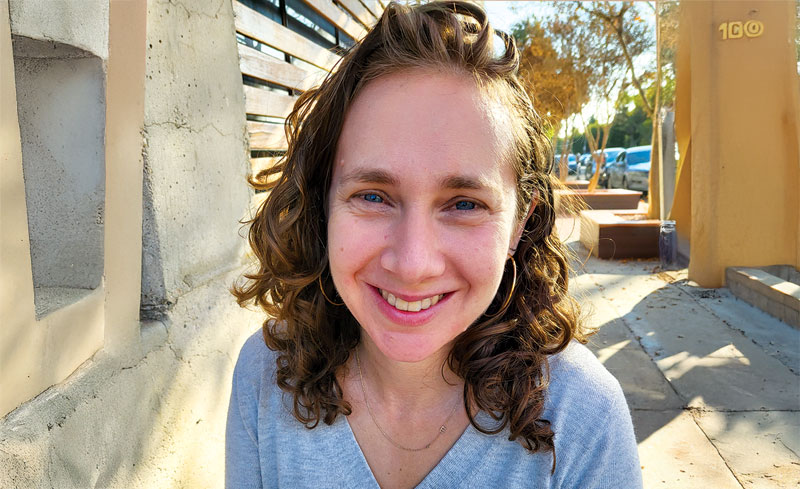Nov. 28, 2002, may go down in history as Israel’s Sept. 11.
Despite two years of relentless Palestinian terrorism that has claimed nearly 700 Israeli lives, last week’s coordinated attacks on Israeli targets in Kenya are being seen as a watershed: They herald Israel’s full-blown entry into the global war against terrorism, according to defense sources.
"Only" three Israelis died in a suicide bombing of an Israeli-owned hotel near Mombasa, and missiles fired at an Israeli passenger plane narrowly missed, causing no casualties. But the potential for damage — had the missiles hit the plane, which was carrying 261 passengers and crew, or had the car bomb caused the entire hotel to collapse — was enormous.
As Defense Minister Shaul Mofaz noted, "The attacks should be judged by their intention, not their results."
In its planning and daring, the Kenya assault represents just the sort of "mega-terror" attack that Israeli officials long have feared. Because they came against defenseless tourists in a distant and idyllic corner of the world, the attacks have made Israelis feel that no place is safe.
Already hard-pressed to deal with Palestinian attacks in Israel, the West Bank and the Gaza Strip, Israelis now face serious questions about how to defend themselves against dispersed terrorists without a clear "return address" — the same sort of questions, in short, that America has been grappling with since Sept. 11.
Observers here say that from now on, things will never be the same.
The attacks have left Israelis "with a sense of claustrophobia, a feeling that there’s no way out, no solution, no refuge," one diplomatic analyst wrote in the daily Ma’ariv newspaper. "Even going abroad is no longer the liberating respite it once was. They seek us here, there and everywhere, all the time. Fear is all there is."
Prime Minister Ariel Sharon put the Mossad in charge of investigating and responding to the attacks. For some, this was reminiscent of Israel’s use of the Mossad to track down and kill the Palestinian terrorists who killed Israeli athletes at the 1972 Munich Olympics.
From now on, defense sources say, the Mossad will devote more resources and play a more active role in gathering intelligence and tracking the architects and proponents of global terror. Moreover, it will do this alongside American, British and other major intelligence agencies.
This collaboration has important diplomatic implications for the Israeli-Palestinian conflict: International terror against Israeli civilians, in the name of Palestinian rights, may well lead the West to identify Israel’s fight against Palestinian terrorism with the global war on terror.
After the attacks, Israeli arguments that Palestinian terrorism is part and parcel of the international jihad against the West may carry more weight. Israel will be seen as on the "right side," while the Palestinians will be tied to the axis of evil. In addition, they say, Israeli requests for American aid to offset the intifada’s economic burden are likely to get a more sympathetic hearing.
In an Internet statement whose authenticity has not been confirmed, Al Qaeda claimed responsibility for the attacks, seemingly confirming Israeli suspicions that Osama bin Laden’s terrorist network was behind the attacks.
Several days before the attacks, a "Letter to the American People," purportedly from Al Qaeda, was released on the Internet. For the first time, the letter defined Israel as the main reason for Al Qaeda’s terrorist attacks on America, and argued that American citizens were fair game because of America’s support for Israel.
But the message seemed likely to backfire: By declaring in one breath that both Americans and Israelis were targets for terror, the organization seemed to be making the case for an Israeli-American alliance against common enemies. It also might undermine those who have tried to argue that attacks on Israel are somehow legitimate because they are part of the Palestinians’ war of independence, and are different from terror attacks on Western countries.
U.S. officials at first stepped back from Israeli assertions that Al Qaeda appeared responsible. Now, though, the American government also believes the evidence points to Al Qaeda.
Two missile launchers recovered from the attack site are from the same production batch as one used by an Al Qaeda operative who tried to down a U.S. military plane in Saudi Arabia in May, the U.S. officials said Monday.
Israel’s army chief of staff, Lt. Gen. Moshe Ya’alon, was quick to draw the connection between Al Qaeda and Palestinian terrorism. Palestinians working as Al Qaeda operatives have been uncovered in the Palestinian territories, Ya’alon said. Moreover, he added, Al Qaeda recently has declared holy war against all "infidels," Christians and Jews alike, a statement that highlighted the cultural affinity between Israel and the West.
What defensive measures can Israel take against the new threat? One obvious need is greater intelligence gathering and access to more shared intelligence, so that Israelis abroad can be alerted to danger. There also is a need for more sophisticated protection of Israeli institutions abroad.
As for civilian aircraft, Rafael, the Israeli weapons development authority, claims to have developed a system to counteract the kind of heat-seeking missiles that were fired in Kenya. In the event of an attack, the device, which would cost around $2 million per plane, sends out a beam that diverts the oncoming missile. With adequate financing, Rafael scientists say, the system could be fully operational in a few months.
Inside Israel, there has been a greater sense of urgency to improve defensive measures since an expose in the Yediot Achronot daily showed how vulnerable most Israeli airfields and helipads were to terrorists armed with rockets or shoulder-fired missiles.
Especially at risk, according to the expose, are the prime minister and defense minister, who use helicopters on an almost-daily basis.
Most observers believe the heightened sense of insecurity following the Kenya attacks will help Sharon and the right wing in the Jan. 28 elections. The more insecure Israelis feel, the more wary they are of change and the more they may look to a father figure like Sharon for protection.
Though the campaign has barely gotten off the ground, Sharon is trying to draw a connection between terrorism and the Labor Party’s more conciliatory policies toward the Palestinians, harping on the fact that Palestinian leaders express a clear preference for Labor leader Amram Mitzna.
When it comes to international terror, observers note, Mitzna has little to offer. His panacea — separation from the Palestinians, with or without an agreement — may convince voters that it can work against Palestinian terrorism. But most observers say it seems woefully inadequate, not to say irrelevant, in the theater of international terror.
Leslie Susser is the diplomatic correspondent for the Jerusalem Report.






















 More news and opinions than at a Shabbat dinner, right in your inbox.
More news and opinions than at a Shabbat dinner, right in your inbox.